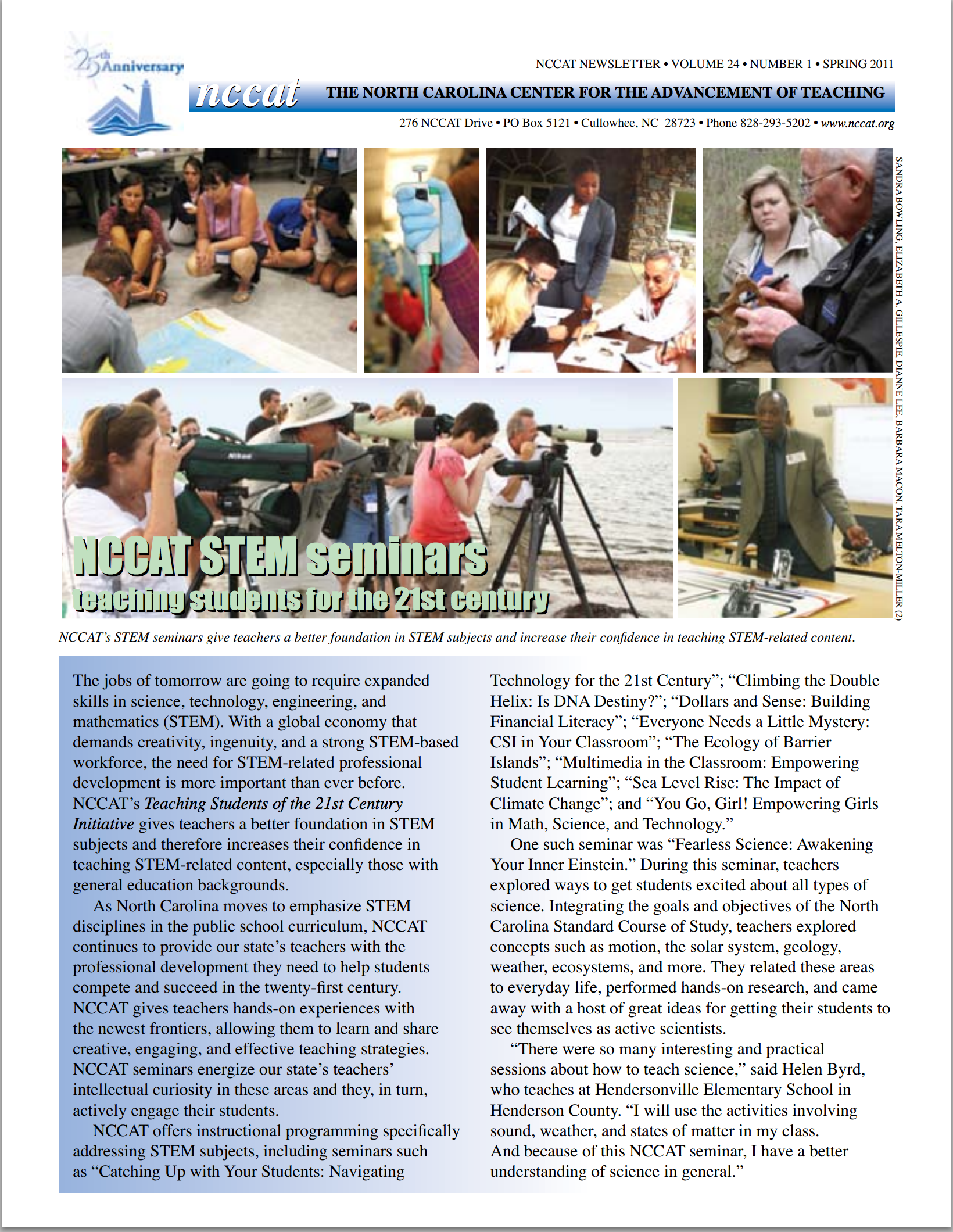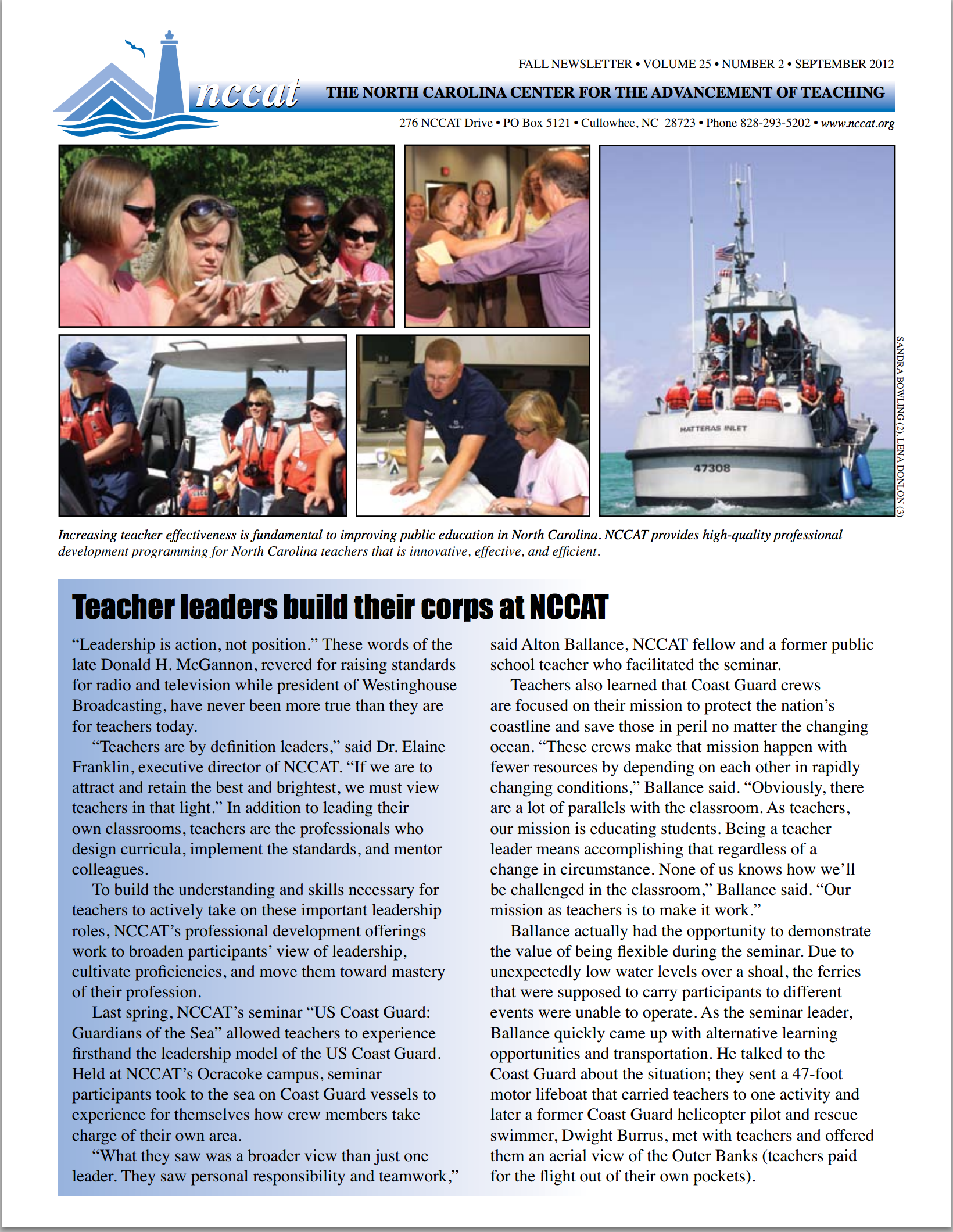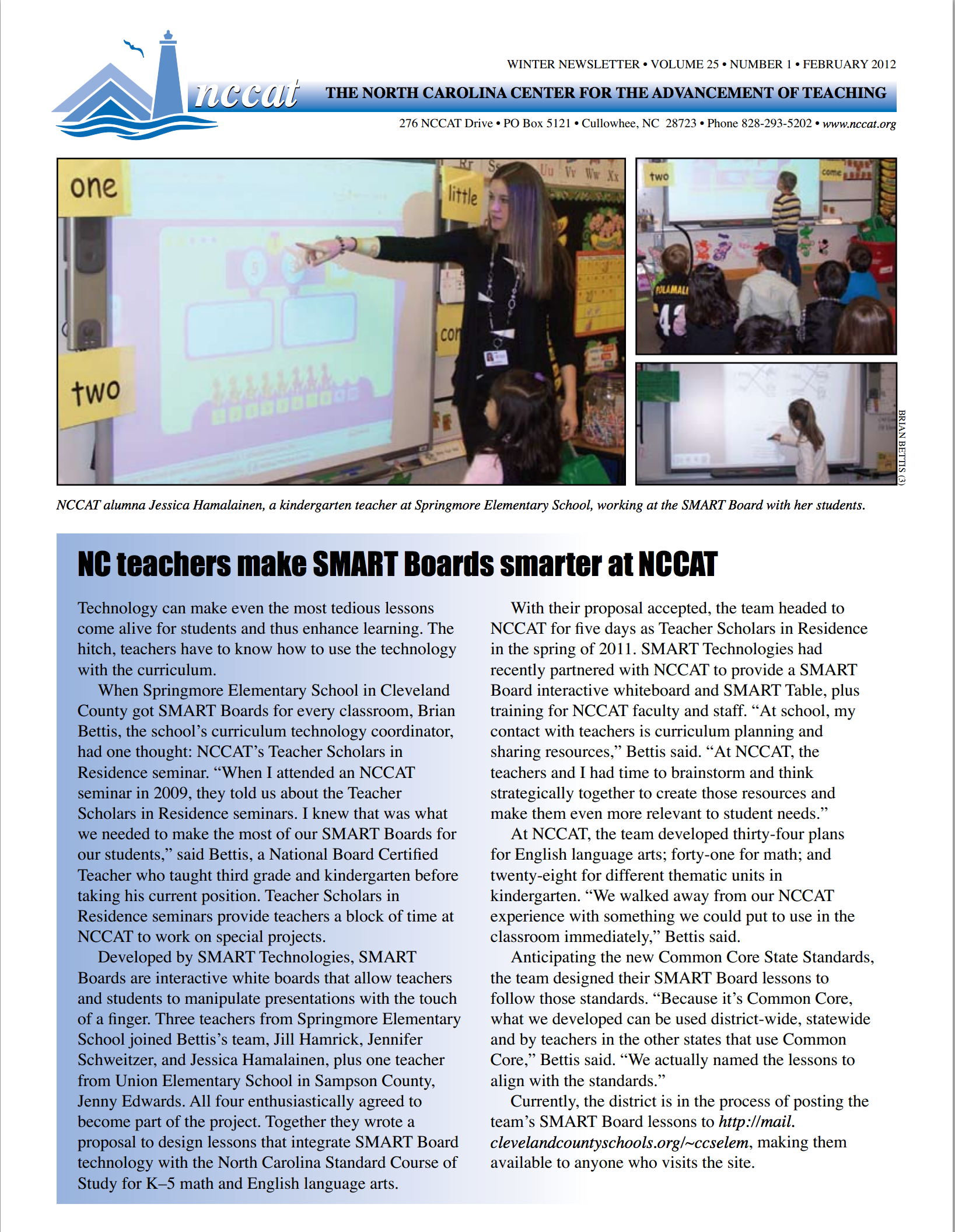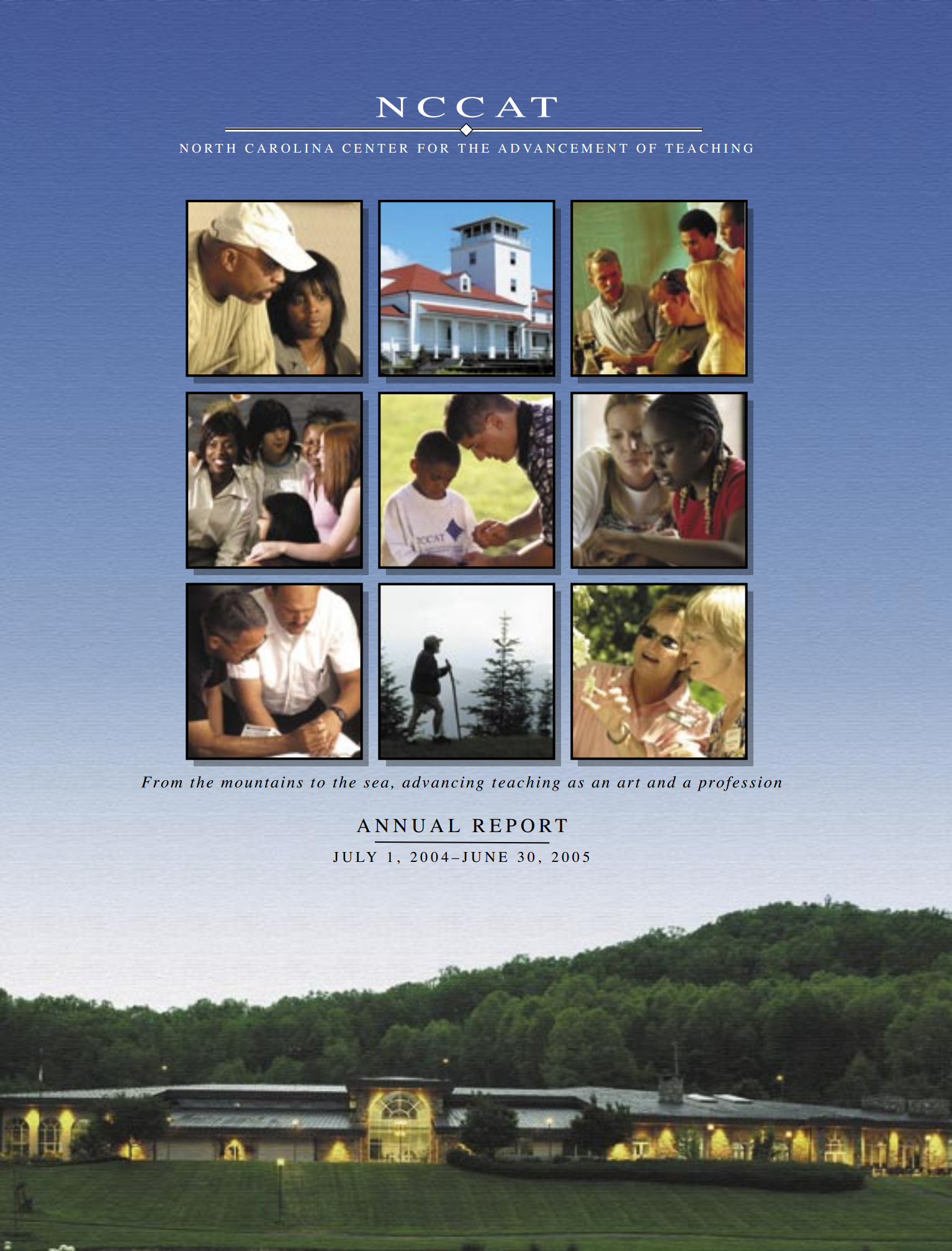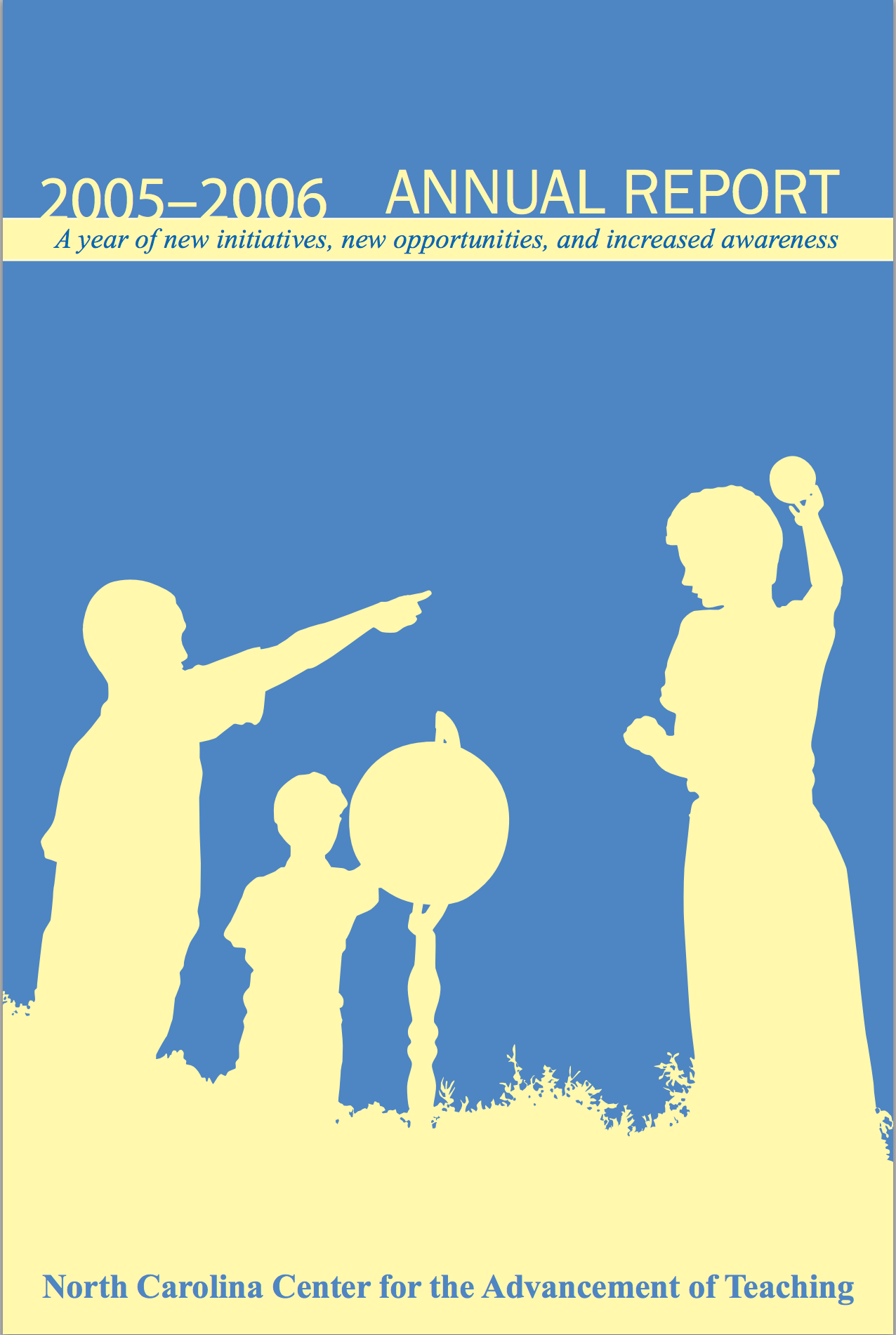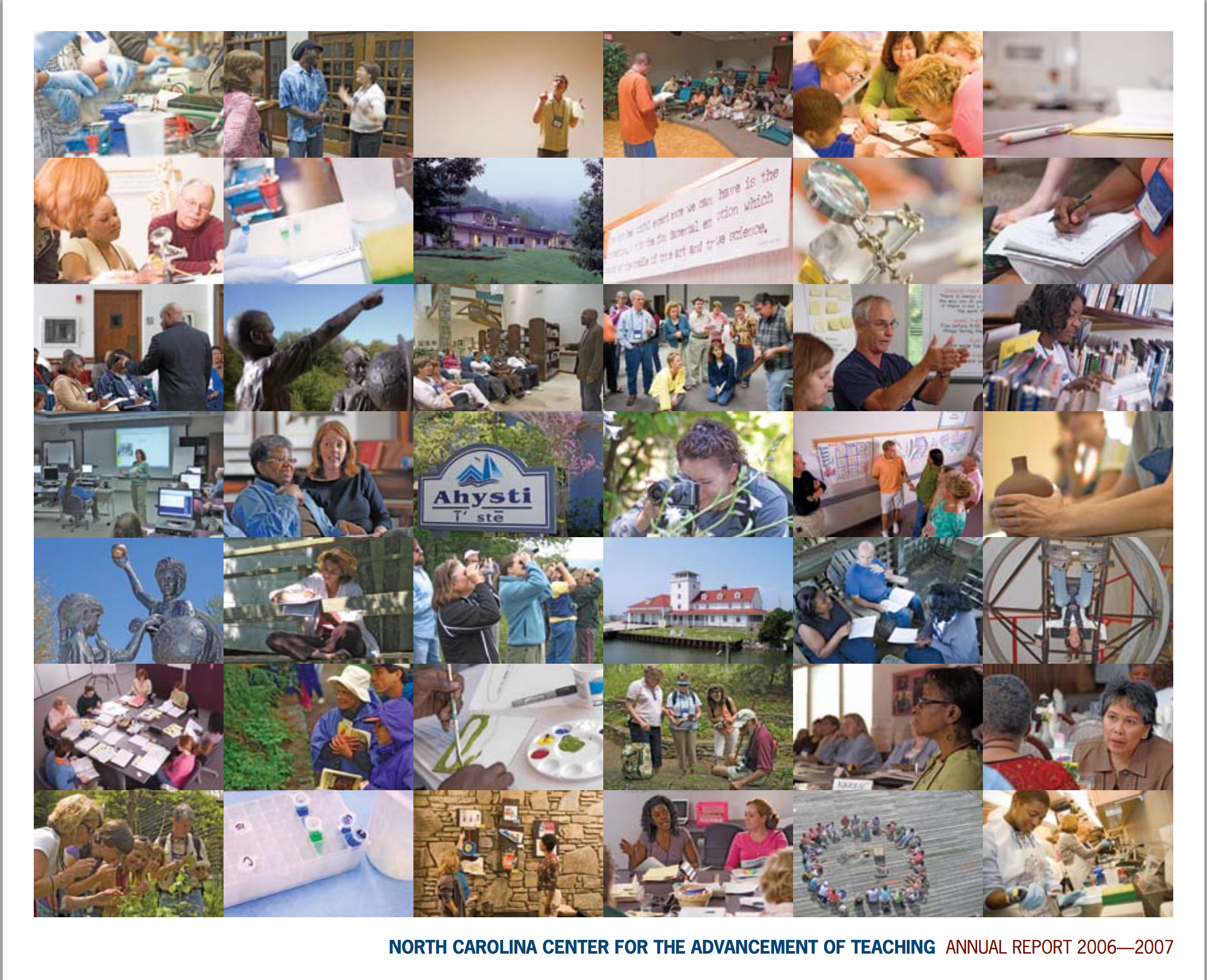Everlene Davis, a teacher with 58 years of experience in North Carolina classrooms, doesn’t just say she believes in life-long learning, she lives it.
Davis was one of 22 teachers from around the state to take part in the North Carolina Center for the Advancement of Teaching’s “Teacher Leadership Institute” in Cullowhee June 16–20. It was the Columbus County teacher’s first trip to NCCAT after being selected Sandhills/South Central Regional Teacher of the Year.


